As we celebrate the 70th anniversary of the founding of PRC, it is high time that Hong Kong reflect on how complement the pace of development of our motherland in the new era. The Chamber hosted the “Complementary Strengths of Hong Kong in National Development” luncheon to explore how Hong Kong could further integrate itself into the big picture of national development, and to identify more space for advancement for Hong Kong enterprises, professional services and talent development.
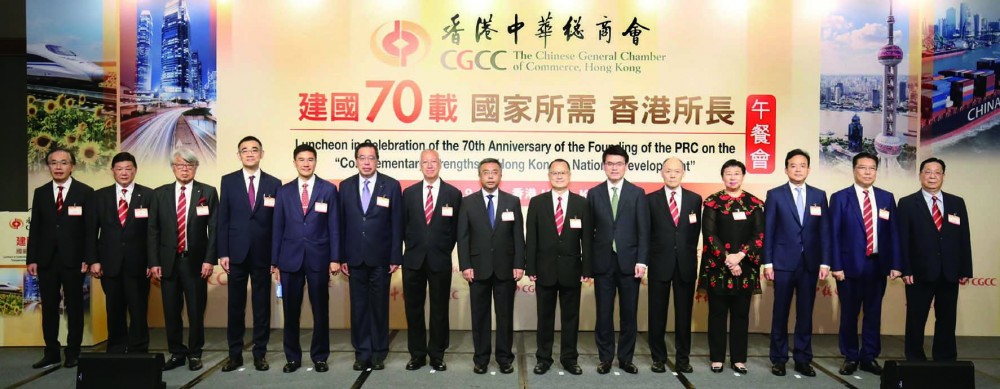
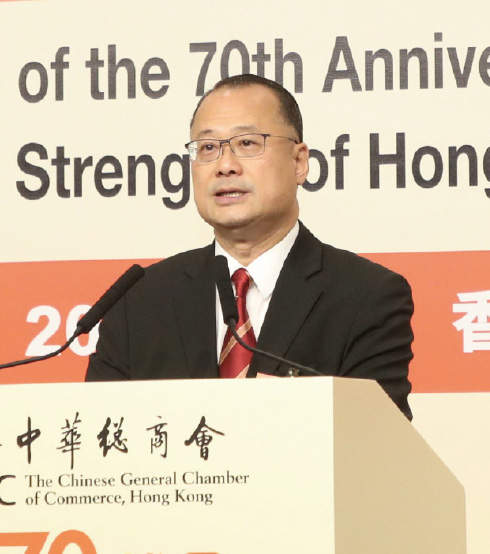
Jonathan Choi: Hong Kong would contribute with its strength
 Jonathan Choi, the Chamber’s Chairman reckoned that profound economic and social development has taken place in the Mainland over more than 40 years of reform and opening-up. Riding on its ever-growing economic prowess and influence, China is now the second largest economy of the world.
Jonathan Choi, the Chamber’s Chairman reckoned that profound economic and social development has taken place in the Mainland over more than 40 years of reform and opening-up. Riding on its ever-growing economic prowess and influence, China is now the second largest economy of the world.
He added that China has been actively promoting the construction of “Belt and Road Initiative” (B&R) in recent years to further facilitate the liberalization and convenient operation of trade and investment, as well as to tighten the global connections and cooperation in politics, economics, culture and infrastructures. The complicated and varied global political and economic landscape calls for the support from different sectors to push the construction of B&R forward and to inject more positive energy and new opportunities for economic development worldwide.
Hong Kong plays the role of “connector”, “participant” and “constructor” in promoting regional cooperation initiatives such as B&R. As the top in Asia and third globally, Hong Kong as an international financial hub is also the largest offshore RMB market around the world, underpinned by a sound legal system and a simple taxation system. Furthermore, Hong Kong enjoys free flow of capital and information; it is blessed with talents in professional services, as well as wide-reaching international connections built throughout the years. We have a strong foundation to support Mainland companies as a two-way business platform that links up foreign investment and overseas expansion. With the accelerated growth of the Guangdong-Hong Kong-Macao Greater Bay Area (Greater Bay Area), a new pivot is in place to complement the construction of B&R, further lifting the importance of Hong Kong for taking part in and contributing to the strategic development of the country.
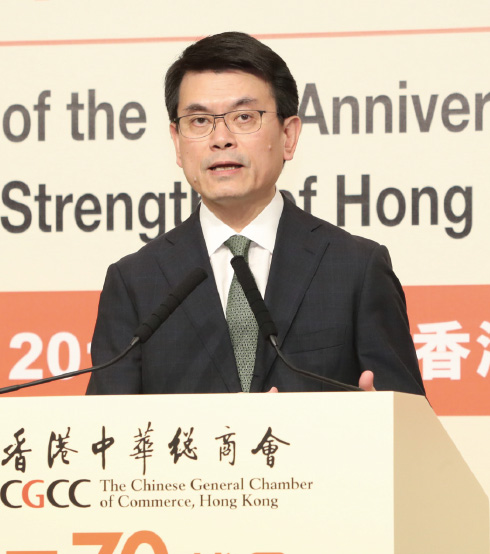
Edward Yau: Different strengths to support different stages
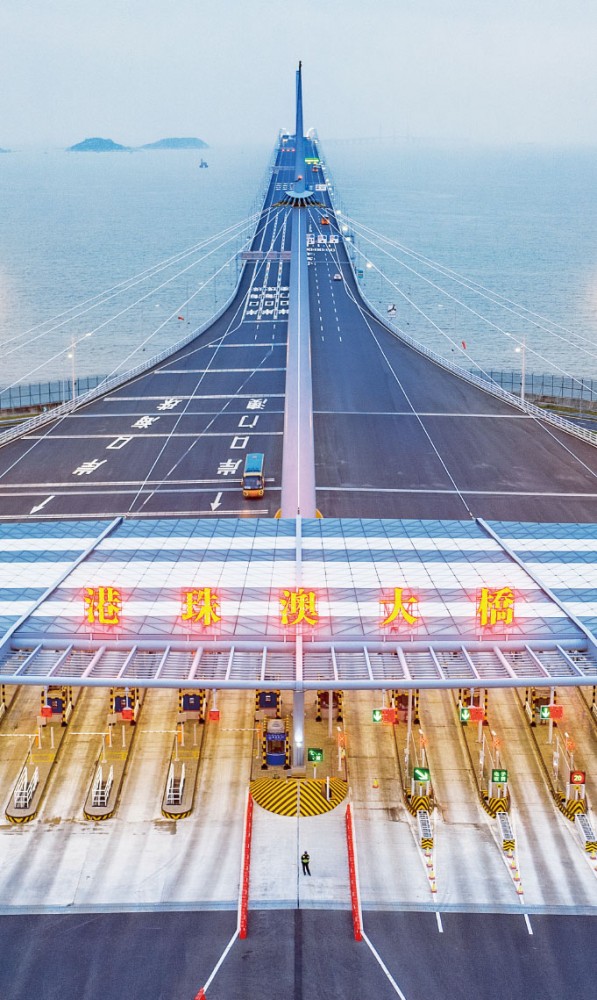 According to Edward Yau, Secretary for Commerce and Economic Development of the HKSAR, there are three major milestones in China’s accelerated development, namely the reform and opening-up that began in 1978, the joining of World Trade Organization in 2001 and the B&R put forward in 2012. Hong Kong has played important roles in all these stages. During the time of reform and opening-up, Hong Kong acted as a forerunner and its merchants were the first to introduce foreign investment into the Mainland. The successful experience and competitiveness of Hong Kong are rooted in Mainland to achieve a win-win situation.
According to Edward Yau, Secretary for Commerce and Economic Development of the HKSAR, there are three major milestones in China’s accelerated development, namely the reform and opening-up that began in 1978, the joining of World Trade Organization in 2001 and the B&R put forward in 2012. Hong Kong has played important roles in all these stages. During the time of reform and opening-up, Hong Kong acted as a forerunner and its merchants were the first to introduce foreign investment into the Mainland. The successful experience and competitiveness of Hong Kong are rooted in Mainland to achieve a win-win situation.
China’s accession to WTO, as Yau reckoned, was momentous in the country’s deepened participation in the economic globalization. By upholding the concept of free trade and by significantly opening up its market, China is not only growing singularly but is also giving traction to global economic development. The signing of CEPA, on the other hand, enables Hong Kong to further deepen its economic and trade connections with the Mainland, and at the same time, lays down an important cornerstone for the service industry’s expansion into the Chinese market.
Yau noted that the B&R further propelled China towards high-quality development. In this regard, the role of Hong Kong is much more than an investor and a manager. It also links up China with other parties and acts a high value-adding partner. Meanwhile, Hong Kong is also a stakeholder in the development of B&R. By involving deeply at the policy level, Hong Kong is not only able to gain dividends, but also be inspired to rediscover the competitive edges of Hong Kong.
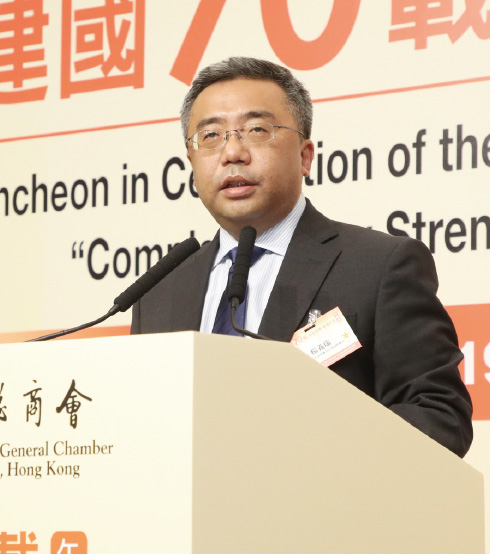
Yang Yirui: Integrating into the constructions of B&R and Greater Bay Area
Kicking off his remarks, Yang Yirui, Deputy Commissioner of Commissioner’s Office of China’s Foreign Ministry in the HKSAR, reported that 195 inter-governmental agreements have been signed between the Chinese government and 136 countries and 30 international organizations as of end of July. He pointed out that the success of B&R depend on seizing the opportunities of our time, and on responding positively to the common wish of the world, i.e. to seek peace, to promote growth, to cooperate, and to achieve winning for all.
Yang pointed out that the B&R has originated from China. It does not only demonstrate the all-embracing world view in traditional Chinese culture that advocates global connection for common good but is also established at a time when China is equipped with unprecedented abilities and the foundation to contribute to the peaceful development of the world. Going forward, China will continue to ride on the certainty of continuous opening up to respond to the uncertainties of the external environment. It will become the lynchpin for global stability and prosperity by fully actualizing the promises and measures of opening up the country, as put forward by President Xi Jinping at the 2nd B&R Forum for International Cooperation.
Yang emphasized that the business sectors of Hong Kong do know where the unique strengths of Hong Kong lie and where the opportunities from B&R and the Greater Bay Area are. They are also aware of the consequences of missed opportunities. Yang hoped to see the local community refocusing on the development of the economy and people’s livelihood and join up to walk out of the predicament, making contribution to the prosperity and stability of Hong Kong.
A Discussion of Hong Kong’s Competitiveness
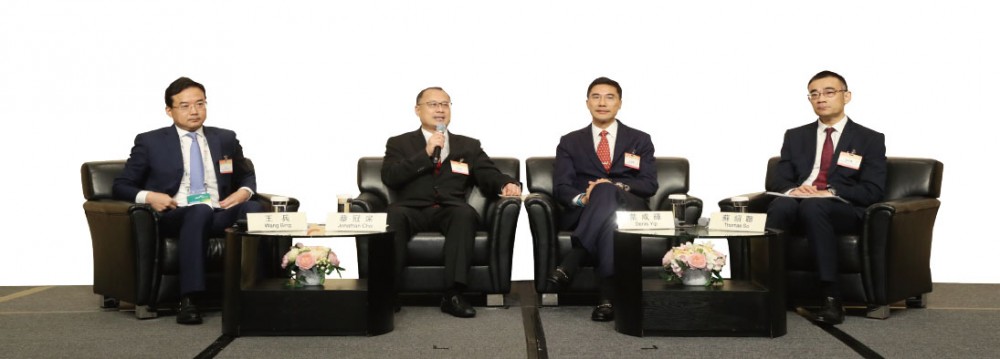
At the panel discussion segment of the luncheon, Denis Yip, Commissioner for Belt and Road of Commerce and Economic Development Bureau of the HKSAR; Wang Bing, Deputy Chief Executive of Bank of China (Hong Kong) Limited and Thomas So, Past President & Chairman of Belt and Road Committee of the Law Society of Hong Kong and Partner of Mayer Brown were invited to analyze from multiple directions on what kind of opportunities and challenges will Hong Kong embrace under new circumstances.
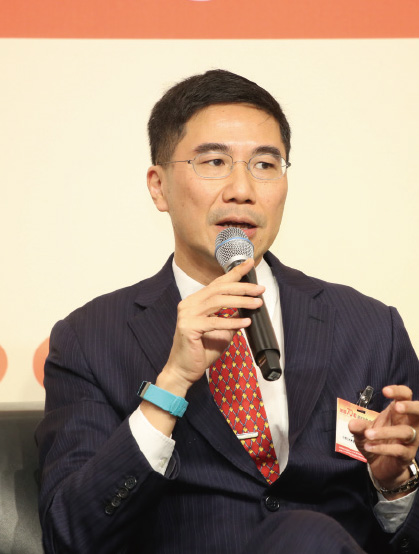
Denis Yip: Hong Kong shows evident competitiveness in professional services
According to Yip, Mainland and Hong Kong could work very closely in pushing the development of B&R forward. He exemplified this by quoting how B&R projects are involved with numerous mega infrastructures, and the support from a large team of lawyers and insurance and legal professionals is critical. Hong Kong has a very strong edge in terms of such professional services. He added that the insurance sector of Hong Kong could offer B&R projects with professional risk management, which could help Hong Kong become a risk management center for B&R in the long run.
Yip hopes that Mainland companies could make better use of Hong Kong’s professional services. He also encouraged companies of B&R countries to set up their regional headquarters and hubs in Hong Kong to leverage on Hong Kong’s strengths and exploit the abundant business opportunities made available by the B&R and the Greater Bay Area.
Yip commented that because of the very small local market in Hong Kong, start-ups and SMEs are urgently in need of expansion into new markets and growth points, and B&R is their answer to ample opportunities. The HKSAR government has already proposed a number of support measures in this regard, offering financial aid to companies to fund them expand into the overseas market of B&R.
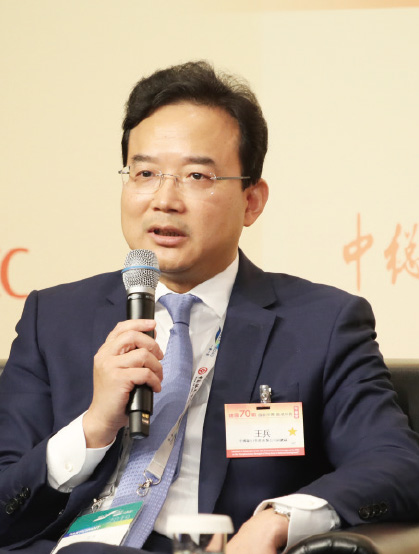
Wang Bing: Financial artery of B&R
BOCHK has been actively configuring for expansion along the B&R. Branches are now opened in 23 out of 65 countries and regions of the B&R. According to Wang, BOCHK is the most internationalized bank in China. Facing the major opportunities brought about by B&R, the bank shall ride on its competitive global network and provide all-direction support to companies venturing out of China.
Wang said that BOCHK has financed 600 B&R projects over the last five years, including a good number of major infrastructures and energy projects. In future, it will continue to take the lead in serving B&R countries and assist SMEs in resolving difficulties of finance and in cross-border investment. The bank envisions to become the main financial artery for B&R.
Wang added that the B&R initiative is not only a new platform for international cooperation, but also a new force to drive mutual growth. The fact that countries along the B&R are maintaining steady economic growth amidst global economic downturn fully demonstrates the value of the initiative.
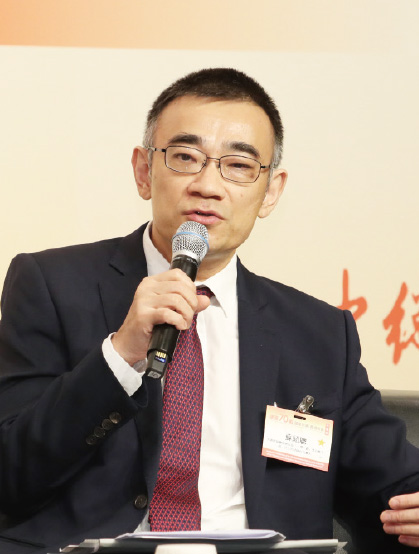
Thomas So: Lifting service standards through technology
So reckoned that Hong Kong is a place where international legal talents converge. In addition to the large number of local lawyers, there are also many practicing lawyers from different parts of the world. Therefore, Hong Kong does have the capacity to provide legal services for most jurisdictions around the world.
So pointed out that the legal service of Hong Kong is of first-class standard internationally. There is also a prominent edge for Hong Kong in terms of intellectual property protection and dispute resolution, making it an important platform for legal rights protection for B&R. Under the Outline Development Plan for the Greater Bay Area, Hong Kong is established as the center for international legal and dispute resolution services, which could complement the B&R by helping merchants to make use of Hong Kong as a legal rights protection platform.
He thought that the legal service of Hong Kong will further leverage on high technology in future. The application of artificial intelligence, blockchain and cloud will help lift the service standard. For example, by offering high-tech based translation service, language barriers commonly faced in B&R cooperation projects can be overcome. Furthermore, So revealed that an online dispute resolution center will soon be launched. By enabling clients from different locations to resolve their disputes, the center will help clients save time and money.




